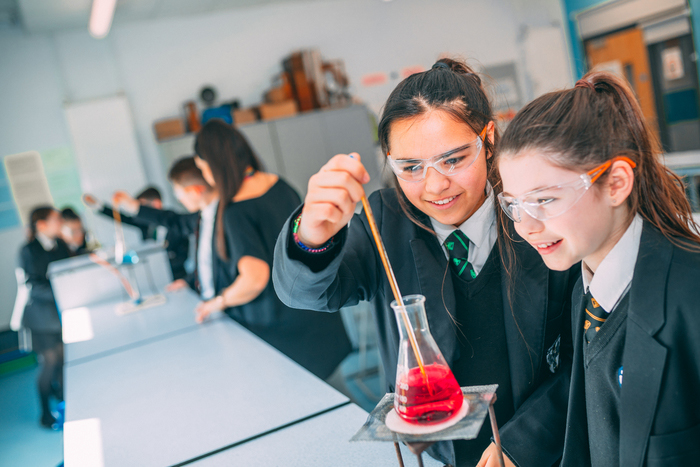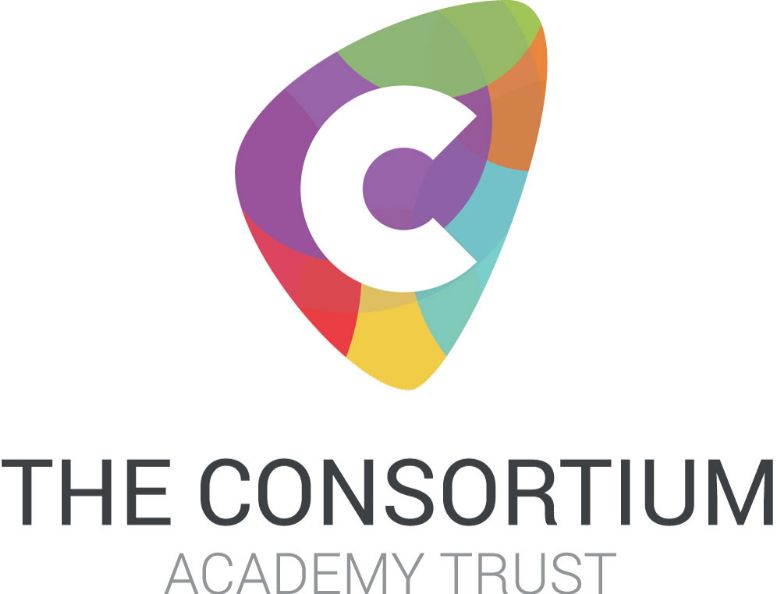Key Stage 4 Implementation
Key Stage 4
Year 10 - 11
As students approach the next stage in their academic and personal development at Hessle High School & Sixth Form College, we are able to offer them a bespoke curriculum that appeals to their interests. We have formed effective partnerships with locally based training providers and our consortium partners to provide access to a wide range of high quality vocational and academic courses.
Though this document will give a brief summary, nothing replaces seeing learning in action. If you would like to visit us during the course of the taught day, please do not hesitate to contact us.
In KS4, students will study courses that give them an opportunity to prepare for life and make future plans to gain the qualifications that will help them achieve their goals.
All courses available provide a unique learning experience. The learning provided will support learners in achieving the school aim of 'everyone can achieve the extraordinary'.
Key Stage 4 Pathways
Whilst the Pathway Booklet provided in Year 9 (in the Spring Term) will provide detailed descriptions of every available course and assessment strategy, this document aims to summarise the curriculum areas and considerations students and parents need to make when selecting a Key Stage 4 (KS4) pathway.
This document will give a brief summary, nothing replaces seeing learning in action. If you would like to visit us during the course of the taught day, please do not hesitate to contact us.
In KS4, students will study courses that give them an opportunity to prepare for life and make future plans to gain the qualifications that will help them achieve their goals. GCSE and Vocational courses will begin in Year 10. Clear information about commencement dates will be provided to parents.
Please note: the Pathway Booklet is available as PDFs below, please be aware the relevant booklet for your child will only be uploaded from Spring of Year 9 and courses cannot be guaranteed each year. All courses available provide a unique learning experience. The learning provided will support learners in achieving the school aim of 'everyone can achieve the extraordinary'.
Compulsory subjects
These are courses that all students follow to make sure they have a broad balanced curriculum ensuring they do not limit their future choices. This is usually referred to as the CORE.
Students also have Pathway selections to make. There are many sources of advice which they and you as parents can consult before committing to a curriculum.
- Subject Leader
- House Leader
- Family
- Older students in school
- Youth and Family Support
We want students to make the best decision to ensure they achieve the success they deserve for their hard work. All pathways can lead to further and higher education, apprenticeships, vocational training or employment.
All curriculum areas are supported by a wealth of extracurricular learning which can be found in the Extended Learning Opportunities booklet. In addition, a wide range of visitors, trips and visits and activity days are planned to enhance learning and enjoyment of school life.
English Literature & English Language
In GCSE English Language and Literature, we will look at writing and understanding fiction and non-fiction, we will offer a wide variety of texts for study, we will teach key skills for communicating through writing and speech and we will encourage an appreciation of literature.
Mathematics
Mathematics is important as it helps students develop confidence in a wide range of methods and techniques. The GCSE course has increased focus on applying maths in context, problem solving and reasoning. The mathematics curriculum covers: Statistics and Number - which includes data handling, probability. Number and Algebra - which includes the number system, expressions and equations, and sequences and functions. Geometry and Algebra - which includes geometrical reasoning and calculation, measuring, graphical methods, and solving problems with algebra.
Science
Learners cover all three areas of science. The GCSEs cover models, theories and assumptions made about the natural world and beyond whilst linking this to your future careers. Science involves practical activities, theory development and analysis of results from scientific methods. Biology includes cell biology, organisation, infection and response, bioenergetics, homeostasis and response, inheritance, variation, evolution and ecology. In Chemistry learners cover atomic structure and periodic table, bonding, structure and the properties of matter, chemical changes, energy changes, the rate and extent of chemical change, organic chemistry, chemical analysis and chemistry of the atmosphere. Physics includes energy, electricity, particle model of matter, atomic structure, forces, waves, magnetism and electromagnetism and space.
The curriculum plan for Chemistry can be found here.
The curriculum plan for Trilogy Chemistry can be found here.
The curriculum plan for Physics can be found here.
The curriculum plan for Trilogy Physics can be found here.
RE (Short Course)
GCSE Philosophy and Ethics explores religion and belief systems. It allows learners to reflect on fundamental questions and provides opportunities to develop your own opinions and promotes an understanding of diversity. A short course GCSE is comparable to half a full GCSE, but the standard is the same as a full GCSE. The curriculum covers three modules: Religious, Philosophical & Ethical Studies in the Modern World, Study of Christianity and a study of a World Faith.
Business & ICT
In GCSE Business Studies, students will investigate how entrepreneurs such as Steve Jobs and Lord Alan Sugar became so successful in business. They gain an insight into what makes a brand successful and understand how external influences such as competition, the economy and legislation effect the actions of a business.
GCSE Computer Science investigates how programs are written, software engineering, and network communications. It includes mathematical computations and the logical puzzles used to decode patterns.
The BTEC Tech Award in Digital Information Technology allows learners to investigate the use of Technology in society today. The course investigates the use of graphical user interfaces on platforms such as your mobile phone, tablets, games consoles, home devices and computers.
The Arts
Fine Art gives learners the opportunity to personalise their work by developing a wide range of creative practical 2D / 3D skills. Learners will explore current, exciting design work and it teaches them to see where the roots of modern art have come from. The course provides opportunities to work with artists and visit inspirational places.
GCSE Music supports learners in forming personal and meaningful relationships with music through the development of musical knowledge, understanding and skills including performing, composing and appraising. The qualification encourages critical engagement a creativity with a wide range of music and musical contexts, develop an understanding of the place of music in different cultures and contexts, and reflect on how music is used in the expression of personal and collective identities.
This BTEC course looks at the acting performance process as well as the final product from the perspective of director, designer, deviser and performer. Learners improve their performance skills by allowing them to perform their own work and recreate written text. It also develops imagination and creativity and the ability to create drama.
This BTEC Drama course focuses on education and training for those who intend to work in the Dance industry as it provides opportunity for learners to study a range of dance styles and develop both technical and interpretive skills. The course also develops r imagination and creativity and the ability to choreograph work. Learners explore and analyse professional repertoire and the processes used to create performance.
GCSE Photography focuses on developing understanding of the creative, imaginative and practical skills for working in photography. The course explores visual perception and visual literacy- this will craft an appreciation of the history of photography, through practical and critical responses.
The curriculum plan for Music can be found here.
The curriculum plan for Drama can be found here.
The curriculum plan for Art can be found here.
The curriculum plan for Photography can be found here.
The curriculum plan for Dance can be found here.
Physical Education
GCSE Physical Education develops knowledge and practical skills/rules in a range of team and individual activities. It also examines the effects of exercise and how training can improve performance. Through taking the course learners develop an understanding of how to live a healthy active lifestyle.
Cambridge National in Sport Studies enables students to develop and apply knowledge of sports-related activities. They explore contemporary issues in sport, diverse ways of being involved in the sports industry, and the impact of sport on wider society. They will learn about funding, participation, ethics and role models, and sport and the media.
Technology
GCSE Textiles and GCSE Resistant Materials courses are modern and relevant. It will provide the opportunity to learn about contemporary technologies, materials and processes as well as established practices. Learners will understand and apply the iterative design process as well as learn to use creativity and imagination to design and make prototypes that solve real and relevant problems, considering their own and others’ needs, wants and values. The curriculum follows Core technical principles and Specialist technical principles.
Food Preparation & Nutrition is a fresh and exciting GCSE course. It offers the chance to be creative with a range of ingredients and cooking techniques/skills, develop specialist knowledge of nutrition, food traditions, food science and kitchen safety. It provides opportunities to make connections between theory and practice to apply in preparation and cooking.
MFL
The GCSE Spanish and French courses develops communication and comprehension skills in Spanish and improves literacy in English. It focuses on topics about free time and hobbies, school life, the world of work, holidays and travel plans and health and healthy lifestyle. It is beneficial as it fits in with any other combination of GCSEs and widens learners’ options for the future.
History
GCSE History develops knowledge and understanding of both studies across time and in depth. There are four key modules, with learners covering; The American West, 1845, Anglo Saxon and Norman England 1060-1088, Medicine in Britain, 1250-present and the USA, 1954-75.
Geography
GCSE History develops knowledge and understanding of both studies across time and in depth. There are four key modules, with learners covering; The American West, 1845, Anglo Saxon and Norman England 1060-1088, Medicine in Britain, 1250-present and the USA, 1954-75.



